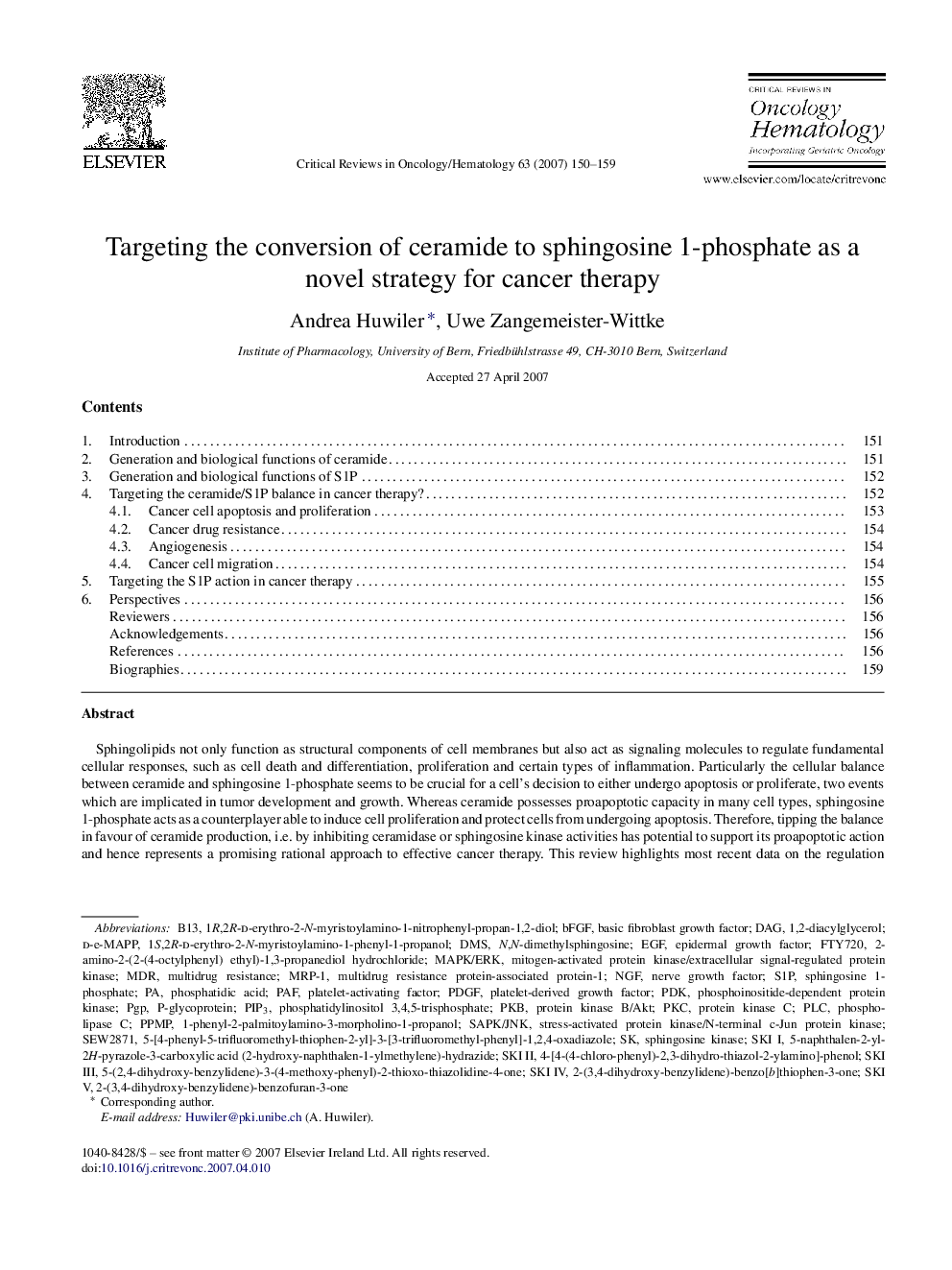| Article ID | Journal | Published Year | Pages | File Type |
|---|---|---|---|---|
| 3330375 | Critical Reviews in Oncology/Hematology | 2007 | 10 Pages |
Sphingolipids not only function as structural components of cell membranes but also act as signaling molecules to regulate fundamental cellular responses, such as cell death and differentiation, proliferation and certain types of inflammation. Particularly the cellular balance between ceramide and sphingosine 1-phosphate seems to be crucial for a cell's decision to either undergo apoptosis or proliferate, two events which are implicated in tumor development and growth. Whereas ceramide possesses proapoptotic capacity in many cell types, sphingosine 1-phosphate acts as a counterplayer able to induce cell proliferation and protect cells from undergoing apoptosis. Therefore, tipping the balance in favour of ceramide production, i.e. by inhibiting ceramidase or sphingosine kinase activities has potential to support its proapoptotic action and hence represents a promising rational approach to effective cancer therapy. This review highlights most recent data on the regulation of cellular sphingolipid formation and their potential implication in tumor development, and provides perspectives for their use as targets in molecular intervention therapy.
